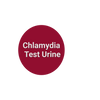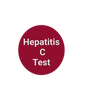STD Testing
11 products

If you're sexually active, particularly with multiple partners, you've probably heard the following advice many times: Use protection and make sure you get tested.
This is important because a person can have a sexually transmitted disease without knowing it. In many cases, no signs or symptoms occur. In fact, that's why many experts prefer the term sexually transmitted infections (STIs), because you can have the infection without disease symptoms.
But what types of STI testing do you need? And how often should you be screened? The answers depend on your age, your sexual behaviors and other risk factors.
Don't assume that you're receiving STI testing every time you have a gynecologic exam or Pap test. If you think you need STI testing, request it from your doctor. Talk to your doctor about your concerns and what tests you'd like or need.
Testing for specific STIs
Here are some guidelines for STI testing for specific sexually transmitted infections.
Chlamydia and gonorrhea
Get screened annually if:
- You're a sexually active girl or woman under age 25
- You're a woman older than 25 and at risk of STIs — for example, if you're having sex with a new partner or multiple partners
- You're a man who has sex with men
- You have HIV
- You've been forced to have intercourse or engage in sexual activity against your will
Chlamydia and gonorrhea screening is done either through a urine test or through a swab inside the penis in men or from the cervix in women. The sample is then analyzed in a laboratory. Screening is important, because if you don't have signs or symptoms, you can be unaware that you have either infection.
HIV, syphilis and hepatitis
The Centers for Disease Control and Prevention (CDC) encourages HIV testing, at least once, as a routine part of medical care if you're an adolescent or adult between the ages of 15 and 65. Younger teens should be tested if they have a high risk of an STI. The CDC advises yearly HIV testing if you are at high risk of infection.
Hepatitis C screening is recommended for everyone born between 1945 and 1965. The incidence of hepatitis C is high in this age group, and the disease often has no symptoms until it's advanced. Vaccines are available for both hepatitis A and B if screening shows you haven't been exposed to these viruses.
Request testing for HIV, syphilis and hepatitis if you:
- Test positive for another STI, which puts you at greater risk of other STIs
- Have had more than one sexual partner since your last test
- Use intravenous (IV) drugs
- Are a man who has sex with men
- Are pregnant or planning on becoming pregnant
- Have been forced to have intercourse or engage in sexual activity against your will
Your doctor tests you for syphilis by taking either a blood sample or a swab from any genital sores you might have. The sample is examined in a laboratory. A blood sample is taken to test for HIV and hepatitis.
Genital herpes
A blood test also may help detect a herpes infection, but results aren't always conclusive. Some blood tests can help differentiate between the two main types of the herpes virus. Type 1 is the virus that more typically causes cold sores, although it can also cause genital sores. Type 2 is the virus that more typically causes genital sores.











